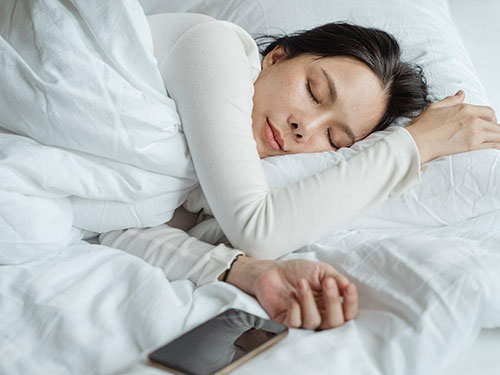Sleep
It is important to get a full, restful night’s sleep. Yet, night after night, people living with PASC can have trouble sleeping. They might wake up often or have a poor quality of sleep. They may wake up in the morning feeling tired and not rested. If you have trouble sleeping, know that it can be a common problem for people with PASC.









